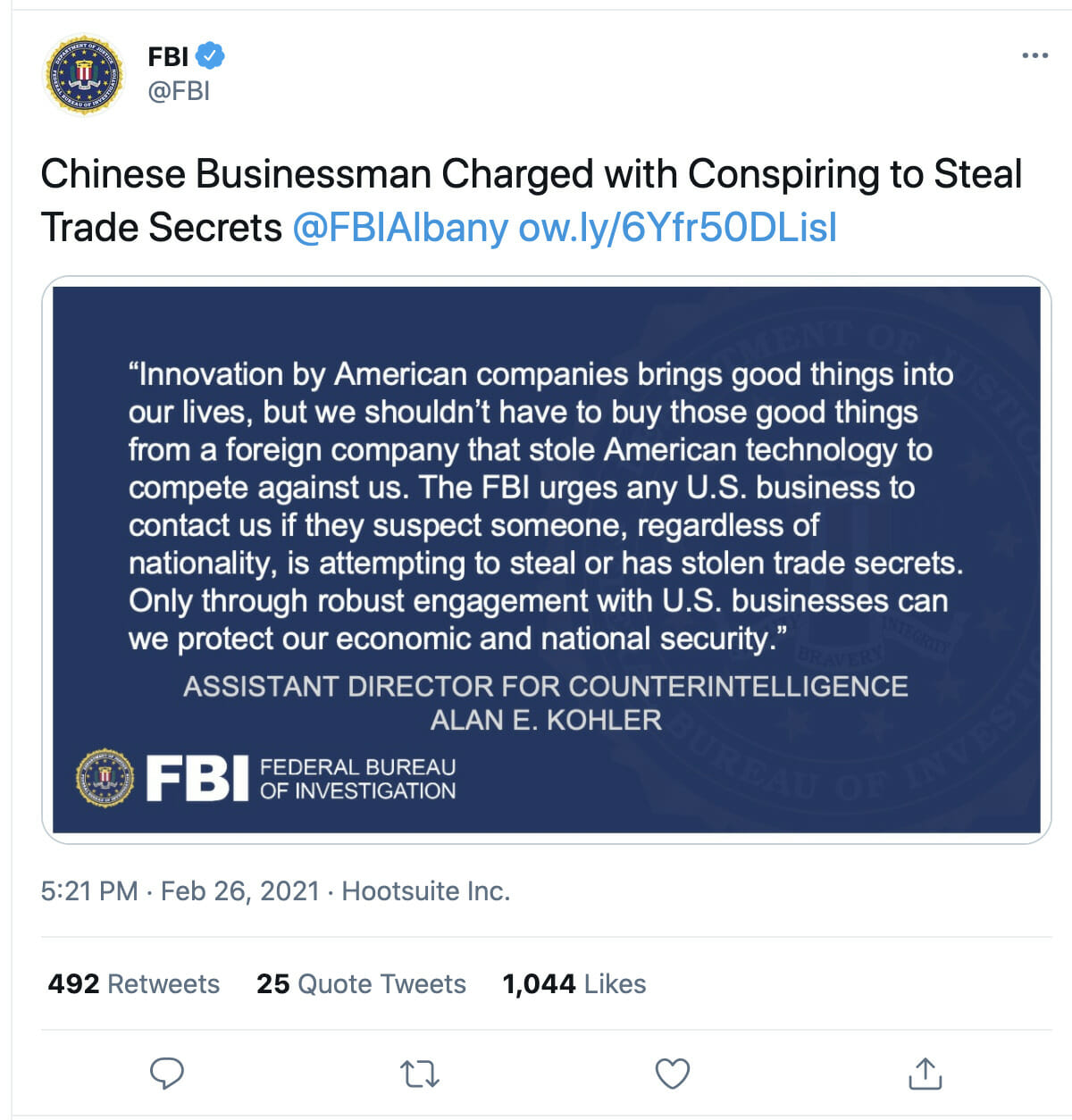China is not taking their foot off the gas when it comes to intellectual property theft. Chi Lung Winsman Ng, aka Winsman Ng, 64, a Chinese businessman residing in Hong Kong, was indicted on February 26, 2021 for “conspiring to steal General Electric’s (GE) trade secrets involving the company’s silicon carbide MOSFET (metal-oxide-semiconductor field-effect transistor) technology worth millions of dollars.”
Global enterprises such as GE routinely experience attempts to purloin their trade secrets and intellectual property. In this instance, Ng was indicted for his actions from March 2017 through January 2018 when he attempted to build a business in China based on stolen GE technology. The Chinese company would in essence have GE competing against its own designs within the China market.
déjà vu for General Electric
If this sounds a bit like déjà vu, there’s good reason. In April 2019, China’s efforts to steal GE’s turbine technology were thwarted and resulted in the indictment of Xiaoquing Zheng, a GE insider who was discovered to have copied more than 19,000 files to a USB drive and had encrypted over 400 files on his desktop. Then Assistant U.S. Attorney General Demers noted at that time, “The indictment alleges a textbook example of the Chinese government’s strategy to rob American companies of their intellectual property and to replicate their products in Chinese factories, enabling Chinese companies to replace the American company first in the Chinese market and later worldwide.”
Looking back a bit further, yet contemporaneous with the activities of Ng, we see that in October 2018, Chinese Ministry of State Security officer was arrested in Belgium and then subsequently extradited to the United States for his part in targeting and attempting to steal trade secrets and intellectual property from GE aviation.
Alarm Bells for Companies
While it is heartening to note the three separate efforts to steal General Electric’s technologies resulted in indictments, alarm bells should be sounding for every defense contractor regardless of sector.
The alarm? China is willing and able to steal your technology.
Setbacks to their efforts don’t seem to dissuade China’s intellectual property theft efforts.
With respect to Ng’s efforts at intellectual property theft and exploitation, Assistant Director Alan E. Kholer, Jr., of the FBI’s counterintelligence division urges, “any U.S. business to contact us if they suspect someone, regardless of nationality, is attempting to steal or has stolen trade secrets. Only through robust engagement with U.S. businesses can we protect our economic and national security.”
The DOJ notes Ng has not yet been arrested.





